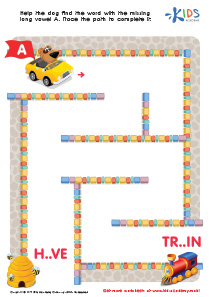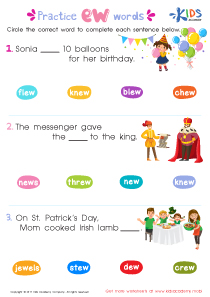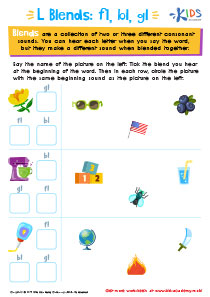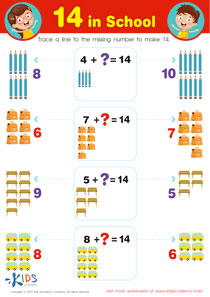World around Us Lessons | Plants for Ages 3-5
2 results
Dive into the fascinating world of greenery with our interactive lessons on Plants for Ages 3-5! Tailored specifically for young minds, our vibrant lessons combine fun worksheets, engaging educational videos, and playful assessment quizzes to spark curiosity and love for nature. Explore the basic concepts of plant life, including types of plants, parts of a plant, and their life cycles, all designed to cater to the learning pace of toddlers and preschoolers. Foster your child's connection with the environment through our immersive learning experience, making their first steps into botany not just educational but truly enchanting. Join us on this green adventure!
Unlocking the Wonders of Nature: Plants for Ages 3-5
In the vibrant world of early childhood education, engaging young minds with the marvels of the natural world is a journey filled with wonder, discovery, and growth. Our specially designed lessons on Plants for Ages 3-5 stand as a testament to this belief. These lessons are not just educational tools; they are gateways to nurturing a lifelong bond between children and the environment.
Why Focus on Plants?
Plants are the backbone of all life on Earth, providing food, oxygen, and habitats for countless species, including humans. Introducing children to the world of plants at an early age fosters appreciation, respect, and a sense of responsibility for the environment. But how do we make the complex world of botany accessible and engaging for children aged 3-5? The answer lies in our innovative approach, which combines interactive worksheets, educational videos, and assessment quizzes to create a holistic learning experience.
Interactive Worksheets: A Hands-On Approach
Our interactive worksheets are designed with the curious, tactile nature of children in mind. Through creative activities such as coloring, matching, and simple gardening projects, children can learn fundamental concepts like the parts of a plant, the role of plants in nature, and basic plant needs. This hands-on approach not only helps solidify information but also improves fine motor skills, attention to detail, and patience.
Educational Videos: Bringing Learning to Life
In an age where screens are an integral part of our lives, our educational videos serve as a powerful tool to captivate young minds. Through vivid imagery, engaging narratives, and friendly characters, these videos bring the world of plants right into the classroom or living room. Concepts such as photosynthesis, plant life cycles, and biodiversity are simplified into stories that children can relate to and understand. This visual and auditory stimulation enhances retention and fuels the imagination.
Assessment Quizzes: Measuring Progress
While the idea of assessment quizzes might seem daunting for this age group, our approach is anything but. Designed as interactive games, these quizzes are an enjoyable way for children to demonstrate what they have learned. They encourage critical thinking and problem-solving skills, providing immediate feedback that motivates further learning. These assessments also offer valuable insights to educators and parents about the child's understanding and areas that might need more focus.
Empowering Future Environmental Stewards
By integrating Plants for Ages 3-5 into your child's or students' curriculum, you're not just teaching them about plants; you're planting the seeds of curiosity, respect, and love for the environment. These lessons lay the foundation for scientific thinking, environmental stewardship, and a healthy lifestyle. As children learn about the importance of plants in our world, they also learn about their own role in protecting and nurturing our planet.
In conclusion, our Plants for Ages 3-5 lessons are more than just educational content; they are a series of interactive, engaging experiences that foster a deep connection between children and the natural world. These lessons not only equip children with knowledge but also instill in them a sense of wonder and responsibility that will bloom alongside them as they grow.
















